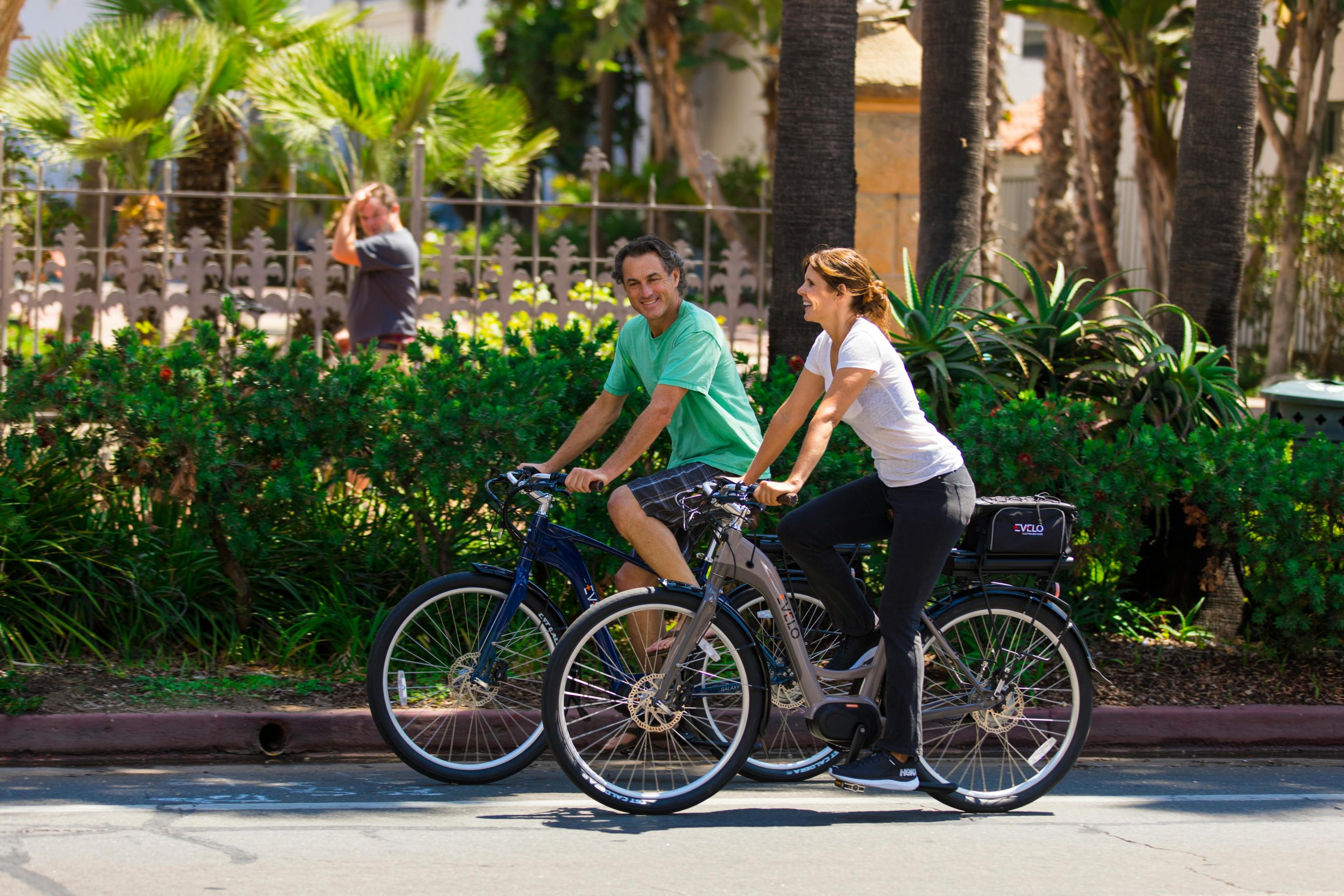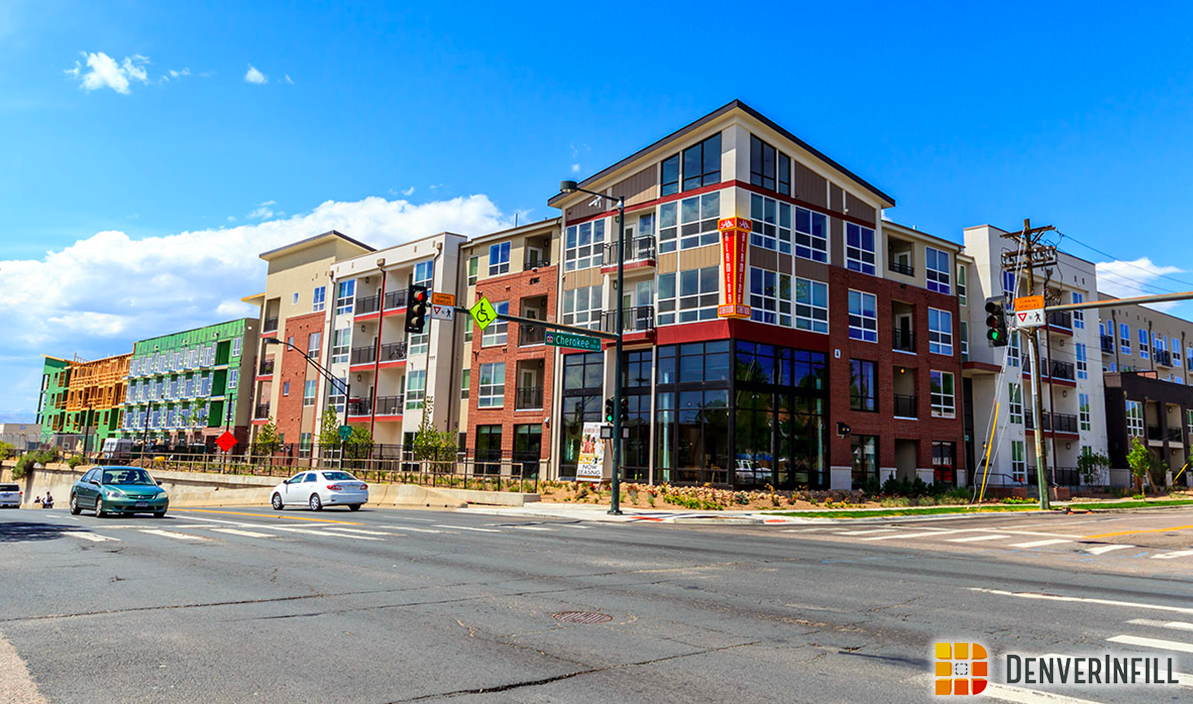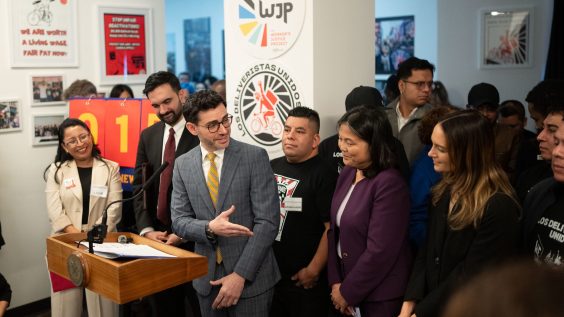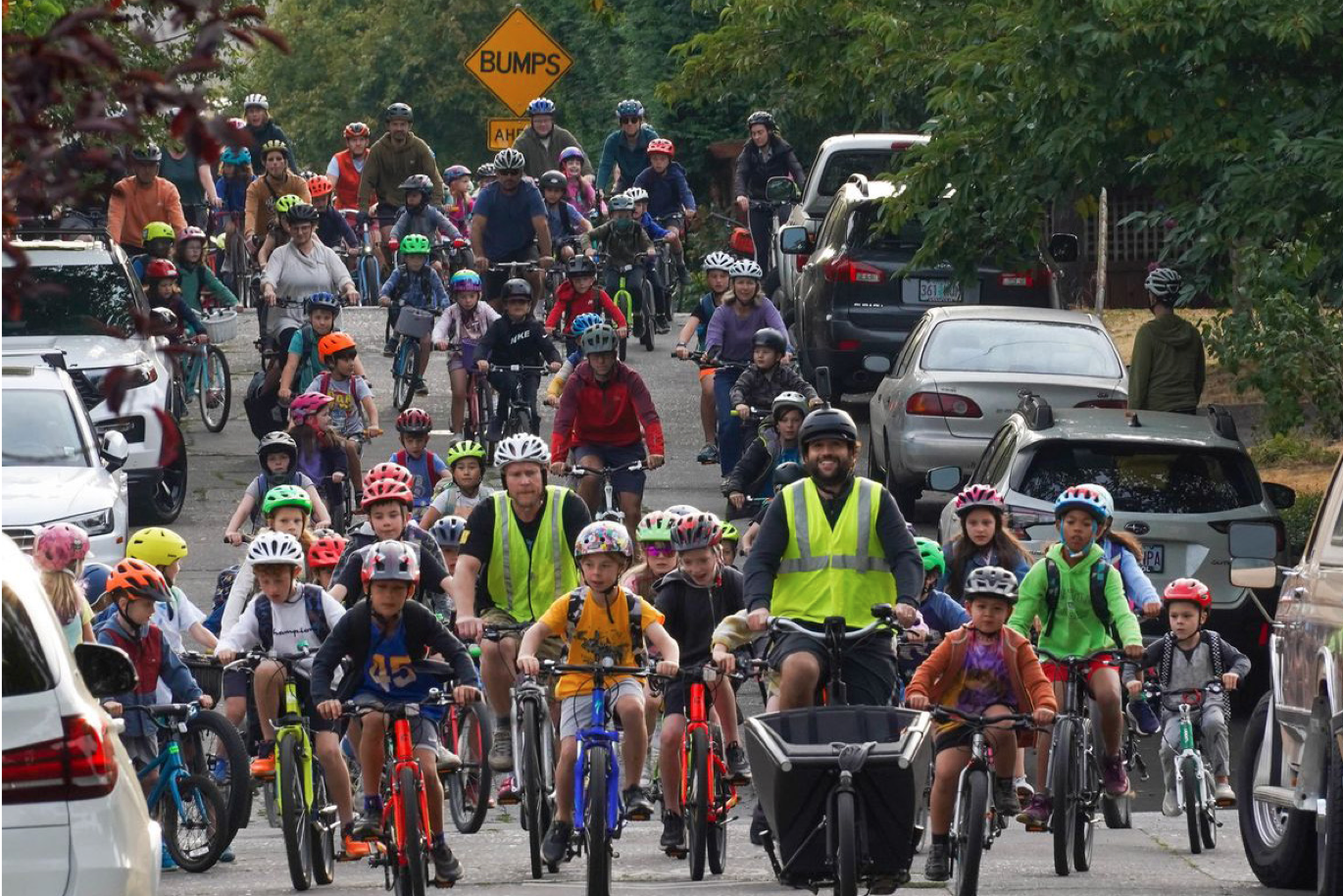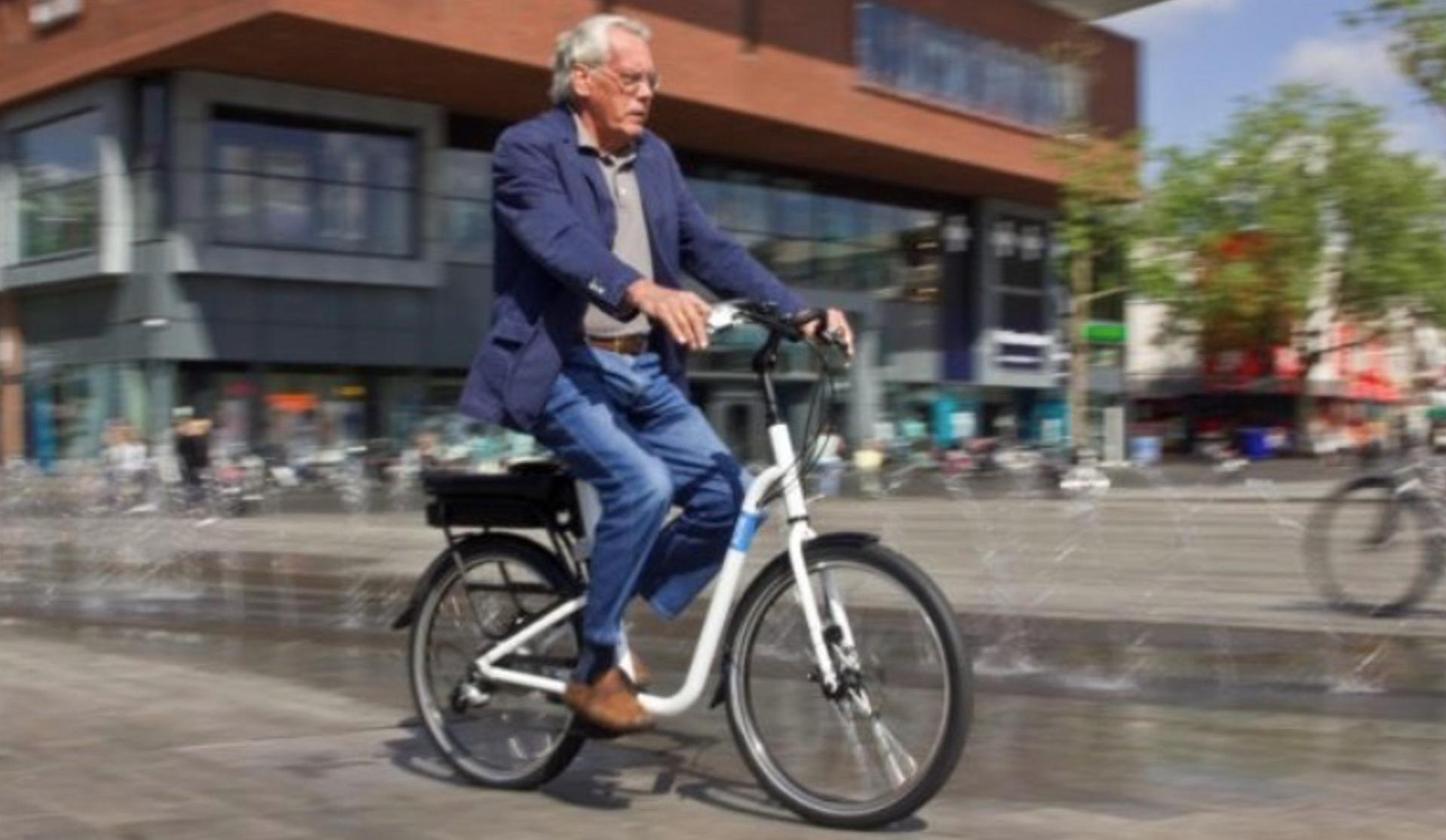Crossposted from the Frontier Group.
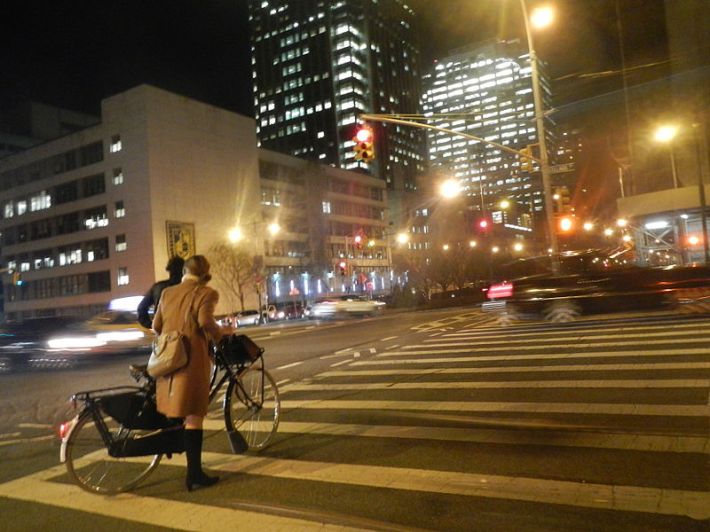
Earlier this week, I had the chance to talk about the role of bicycling in addressing climate change at the National Bike Summit in Washington, D.C., sponsored by the League of American Bicyclists. The conversation was framed around the Paris climate agreement – the pact signed by 195 nations in December that commits to limiting global warming to no more than 2° C above pre-industrial levels.
Achieving the Paris targets will require the virtual elimination of greenhouse gas emissions by mid-century in the United States. That, in turn, will require a fundamental transformation of our energy system and our economy – especially when it comes to transportation.
America’s transportation system is exceptionally polluting, contributing about 5 percent of the world’s greenhouse gas emissions. Transportation in the U.S. produces more carbon dioxide than the entire economy of any nation in the world other than China, Russia and India. The average American produces roughly three times as much carbon dioxide from transportation as the average resident of the United Kingdom, France or Germany. There is, quite simply, no solution to the world’s climate crisis that doesn’t involve profound changes in how Americans travel.
Bicycling, on the surface of it, would seem to have little immediate potential to change that reality. Few Americans bike and most American roads are laid out in ways that are hostile to even those cyclists willing to make the long-distance trips between destinations required in so many of our sprawling, car-oriented communities.
But the Paris agreement challenges us to reframe the conversation – to ask ourselves not just how we can reduce emissions quickly, but also how we can build lasting communities capable of being entirely carbon-free by 2050. Getting large-scale emission reductions right away, through measures such as improved vehicle fuel economy, is still critically important. But no amount of incremental tweaking of our current wasteful and inefficient system is likely to get us to zero.
In that context, bicycling takes on far greater importance as a climate change solution. That is for at least four reasons:
1) The ability to bicycle safely is important for creating compact cities and towns that support a high quality of life and have minimal impact on the climate. People who live in compact neighborhoods produce fewer greenhouse gas emissions than those who live in sprawling, auto-oriented areas, and many of the strategies that can move us toward a zero-carbon transportation system – from public transportation to emerging shared-use transportation services – tend to work better in compact neighborhoods. Many of the problems that people complain about when they complain about density – including traffic, noise and parking – are really problems with density of cars. Swapping out cars for bikes in our urban transportation systems can reduce the downsides of density and support the development of compact neighborhoods that are great places to live.
2) The recent history of bike-friendly cities shows that dramatic transformation of our transportation system is possible. In European bike meccas like Amsterdam or Copenhagen – or increasingly in U.S. cities like Portland or Minneapolis – there are real-life examples of excellent cities that have reoriented their transportation systems to support zero-carbon modes of travel. Electric vehicles and shared, autonomous cars may someday transform transportation in the United States, but bikes are actually doing it in real cities around the world, today. Bike-friendly cities show us that there is no need to wait for new technology to begin the process of transformation. By studying their stories, we can glean important lessons for how to make transformation of all kinds a reality.
3) Cycling and pedestrian advocates have developed a language for values-based transformation that those who advocate for carbon-free transportation can learn from. In championing Vision Zero and Complete Streets, bike/ped advocates have drawn bright lines. Safety, Vision Zero advocates argue, should always prevail over speed on our streets. Every street, Complete Streets supporters urge, should be designed with the needs of all its users, not just drivers, in mind. What would happen if similar bright lines were drawn around transportation’s contribution to global warming? What if we were to simply stop making transportation investments that make climate change worse? How might we evaluate transportation policy and investment decisions differently?
4) Bicycling in a city is a perception-altering experience. I thought I knew Boston until I started seeing it from two wheels about six or seven years ago. If one of the things that hampers progress in reinventing transportation is a failure to imagine how things might be very different, the very act of cycling can be an antidote. As more people get out in their cities on bikes, they will be challenged to think about things differently and come to the conversation about transforming transportation with fresh eyes.
There is no clear roadmap for decarbonizing our transportation system in the next 35 years, and creating bike-friendly cities and towns certainly won’t achieve that goal on its own. But bicycling can open doors for transformation and create opportunities for our cities and regions to take the next steps toward decarbonization. With the clock already ticking on meeting the Paris targets, the climate movement needs what bicycling has to offer. It is time to take it seriously.
